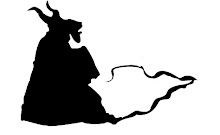
Let me begin with a caveat for those who are less than fully versed in the genre. There are certain truths we as an audience accept when watching modern horror movies:
1.) Everyone has terrible cell phone reception
2.) No one knows how to change a flat tire
3.) It is perfectly logical that the skinny chick in heels can out run the killer faster than her jock boyfriend
4.) When fleeing the killer’s basement and/or torture chamber the best route of escape is to whimper a lot, make as much noise as possible, and then summarily lock yourself in a room with no way out
5.) The villain cannot be killed by bullets, stabbing, strangling, or explosions but a porcelain lamp to the head will subdue him long enough for the girl to run into another inescapable room
6.) After receiving a 911 calling featuring a woman’s voice screaming, “Oh god help! He’s killing everyone!” the police will respond by sending one patrol car driven by a single officer armed with a flashlight
It’s going to take a new breed of horror film to break these conventions and, though it makes a few valiant efforts, “The Human Centipede” is just another replaceable soldier in the horror movie brigade. The film is saved, however, from its humdrum execution by its fairly original premise and the scenery devouring performance of its villain. The plot is simple; three tourists are abducted from the German countryside by the insane Dr. Heiter for his nefarious experiments. Where things start getting interesting is when we discover the nature of the good doctor’s lab research. I don’t want to give anything away but I will say that Dr. Heiter’s previous employment was most likely a rotation as the Chief Surgeon of the Wholly Unnecessary and Bat-Shit Crazy Procedures Department at Munich General Hospital.
The doctor, played with thin-lipped German menace by Dieter Laser, is both a throwback to the mad scientists of horror movies past and a personification of modern fears as well. We don’t fear being chased by knife-wielding maniacs anymore. A generation of children raised on unearned congratulations has produced and audience that thinks they can take down Jason Voorhees with a few punches from their Maori tattooed biceps. What people who were brought up believing they were God’s gift to the world fear most is the idea that they are impotent. That no matter how special they’ve been told they were does nothing to change the fact that they are flesh and bone and that the flesh and bone of even the most confident and posturing person is no less soft and brittle.
Look at films like “Saw” and “Hostel”. Torment and mutilation has replaced murder as the prevalent fear. Dr. Heiter kills only to protect his experiment, not out of sadistic joy. His sadistic joy, and the source of terror in these types of movies, comes from the idea of being left alive in agony. Americans believe that the world revolves around us and around our country and discovering the world (revolving around us or not) doesn’t care about your life and is often downright hostile to the way you live is revolting. The torture in these films is the real world putting us in our place. We have the biggest army, the fastest food, the loudest cars, and the shiniest cell phones but under the knife we bleed the same as anyone else would and that frightens us.
© 2010 Dan Howard.
All rights reserved.
Work cannot be reproduced for any reason without consent of Dan Howard.



